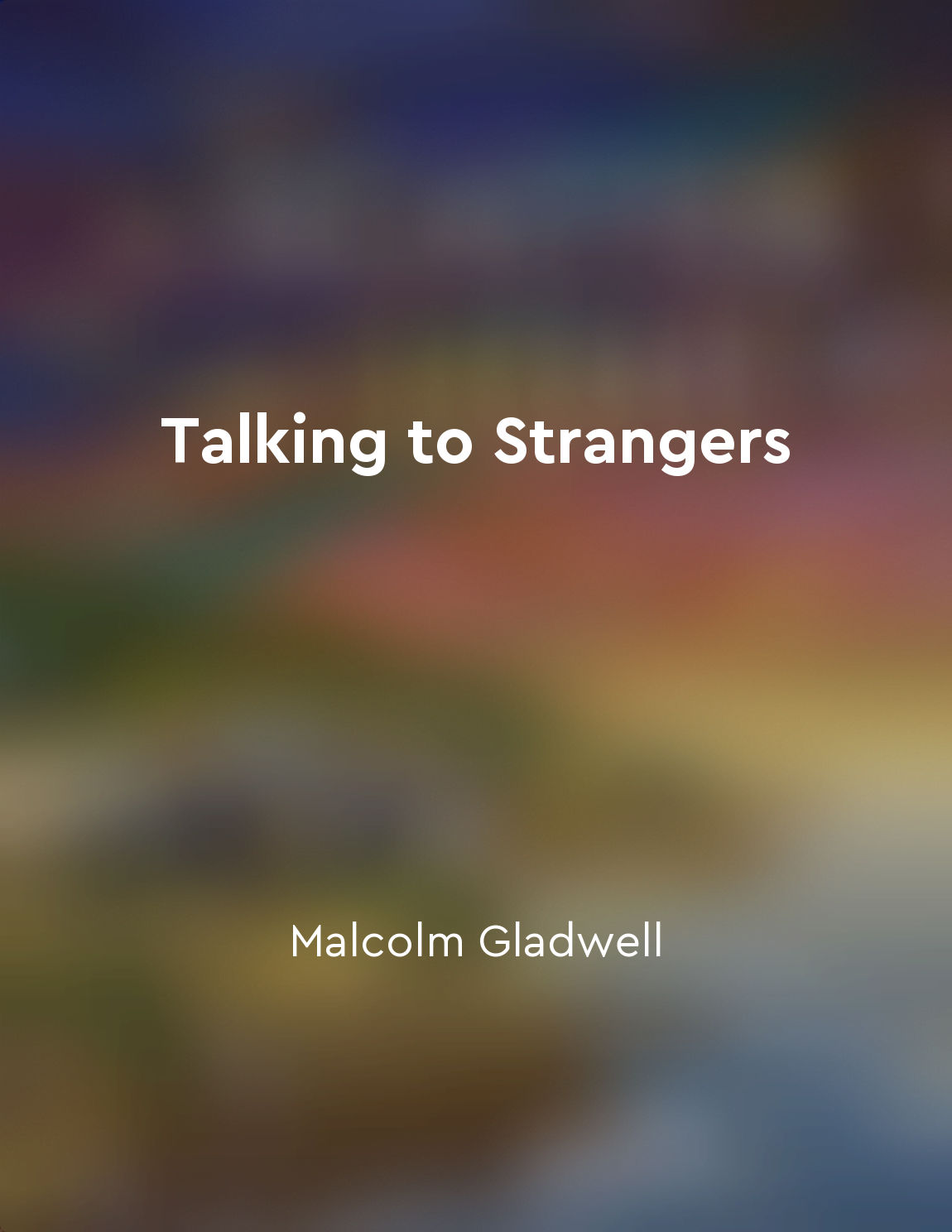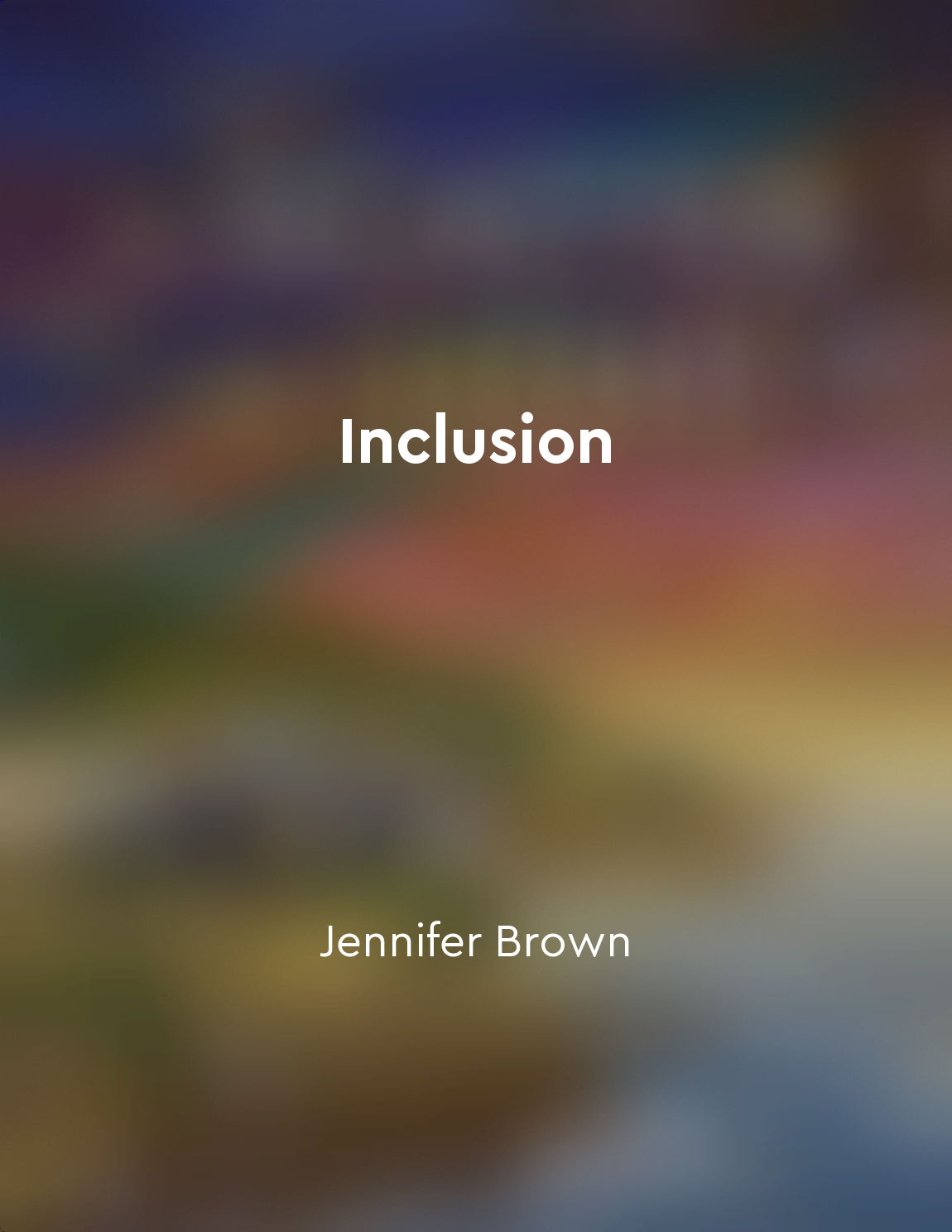Empathy can be learned and nurtured over time from "summary" of Social Empathy by Elizabeth A. Segal
Elizabeth A. Segal posits that empathy is not an innate trait that one is born with. Rather, it is a skill that can be honed and developed over time through conscious effort and practice. This idea challenges the common belief that empathy is fixed and unchangeable, suggesting instead that it is a dynamic quality that can be cultivated through intentional actions and experiences. By recognizing empathy as a learned behavior, individuals can take proactive steps to enhance their empathetic abilities. This involves engaging in activities that promote understanding and compassion towards others, such as actively listening to different perspectives, putting oneself in someone else's shoes, and seeking out opportunities for meaningful connections with diverse individuals. Through these deliberate actions, one can gradually build their capacity for empathy and broaden their emotional intelligence. Moreover, Segal emphasizes the role of social structures and environments in fostering empathy. By surrounding oneself with supportive and empathetic individuals, one can learn by example and absorb the values and attitudes that promote empathy. Additionally, participating in social movements and community initiatives that prioritize empathy can further reinforce one's commitment to cultivating this skill. It is important to note that learning and nurturing empathy is a continuous process that requires patience, self-reflection, and a willingness to step outside of one's comfort zone. It is not a quick fix or a one-size-fits-all solution, but rather a lifelong journey towards becoming a more empathetic and compassionate individual. By embracing this mindset and actively seeking out opportunities for growth, one can gradually transform empathy from a mere concept into a lived reality.Similar Posts

Promote economic opportunities for women
To truly empower women, we must create an environment where they have the same economic opportunities as men. This means ensuri...

Strangers' behavior is influenced by their environment
In the world of human interaction, we often assume that people's behavior is solely a result of their personality, beliefs, or ...
Selfless service brings fulfillment
In my pursuit of truth and self-improvement, I have come to realize the profound significance of selfless service. Through my o...
Personal identity is influenced by social context
Personal identity is not something that exists in isolation; it is deeply intertwined with the social context in which an indiv...

Foster a culture of belonging
Creating a culture of belonging is not just about checking off boxes on a diversity and inclusion to-do list. It's a profound a...
Feelings can be overwhelming
The intensity of emotions can reach a point where it becomes too much to handle. It's like a tidal wave crashing over you, leav...
Social skills are important for developing emotional intelligence
Social skills are essential for the development of emotional intelligence. Interacting with others allows individuals to practi...
Cultivating a growth mindset can boost emotional intelligence
Developing a growth mindset is a critical component in enhancing emotional intelligence. When individuals believe that their ab...

Emotional intelligence training can benefit individuals and organizations
Emotional intelligence training has the potential to bring about significant benefits for both individuals and organizations. T...

Manipulators often use covert persuasion tactics
Manipulators are adept at using covert persuasion tactics to achieve their goals. These tactics are subtle and often go unnotic...
